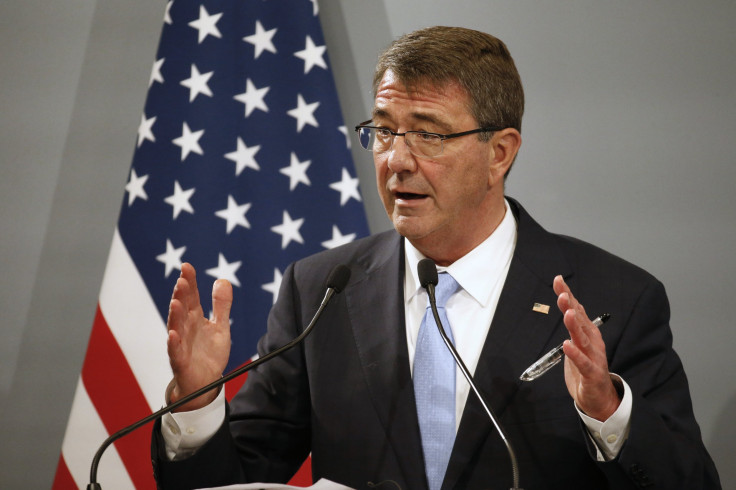US Military Launches Cyberattacks Against ISIS To Complement Airstrikes, Radio Jamming

For the first time in history, the U.S. military has acknowledged it is using cyberattacks and other digital weapons as part of an active war against the Islamic State terrorist group. U.S. Secretary of Defense Ash Carter also said Monday the military is “looking to accelerate” the use of digital weapons to interrupt the terrorist group's online infrastructure.
Carter and Joint Chiefs of Staff Chairman Gen. Joseph Dunford said in a news conference Monday that the U.S. is behind a number of attacks that have sought to disrupt ISIS' communications and overload internet nodes with data. It's part of a plan to stop ISIS, also known as ISIL, recruitment and propaganda strategy, though much of the specifics remain classified.
“With respect to cyber, I think you're referring to our use of cyber which we have talked about generally,” Carter said Monday. “In the counter-ISIL campaign, particularly in Syria to interrupt, disrupt ISIL's command and control, to cause them to lose confidence in their network to overload their network so that they can't function and do all of these things that will interrupt their ability to command and control forces there.”
He added that the cyberattacks in this case are meant to complement airstrikes and the military's radio jamming strategy to prevent communication and broadcasting in Syria, Iraq and elsewhere. Previously, the U.S. public has known only about cyberattacks that were deployed as an alternative to warfare, not part of it. The Stuxnet virus, for example, was deployed against Iranian nuclear centrifuges in 2010 amid a diplomatic breakdown with Iran and in place of airstrikes.
“The cyberwar seal has been broken in public,” Peter W. Singer, author and strategist for the New America Foundation, told the Guardian, adding, “The U.S. military is making it clear that it can and will carry out offensive cyber operations. Everyone knew we could do that and ISIS as the target makes this less controversial but it is still a big line to cross.”
© Copyright IBTimes 2024. All rights reserved.





















